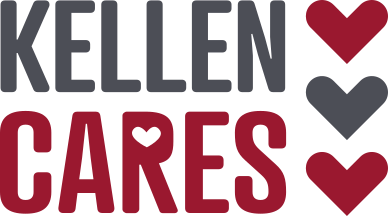Suicide Prevention Education & Training
Suicide Prevention is a Community Issue - Know the Warning Signs
We believe education is the first step to overcoming mental health barriers and stigma in our communities. Stigma surrounding mental health often prevents people from seeking appropriate help. Here you will find educational opportunities in which you can participate to learn more about how you, individually, can be a committed community member in helping to prevent youth suicide.
Charlie Health’s Comprehensive Guide to Suicide Prevention
10 Things Parents can do to Prevent Suicide
Hope Squad
Hope Squad is a peer-to-peer suicide prevention program. Hope Squad members are nominated by their classmates as trustworthy peers and trained by advisors. The progam reduces the rist of youth suicide thorugh education, training and peer intervention. Hope Squad is available for elementary through high school aged children.
Kellen Cares helped bring Hope Squad to eight Spokane Area schools in 2023. Below are the schools currently running the program:
Ferris High School
Lewis and Clark High School
North Central HIgh School
Shadle High School
Northwood MIddle School
Mountainside Middle School
Mead High School
East Valley High School
Please send us an email at info@kellencares.org or click our email link if you’re interested in getting Hope Squad in your Spokane area school! We are currently gauging interest in future trainings.
Youth Mental Health First Aid
Youth Mental Health First Aid is a course designed to teach parents, family members, caregivers, teachers, school staff, peers, neighbors, health and human services workers, and other caring citizens how to help an adolescent who is experiencing a mental health or addiction challenge, or is in crisis.
Youth Mental Health First aid is primarily designed for adults who regularly interact with young people. The course introduces common mental health challenges for youth, reviews typical adolescent development, and teaches a 5-step action plan for how to help young people in both crisis and non-crisis situations. Topics covered include:
Anxiety
Depression
Substance use
Disorders in which psychosis may occur
Disruptive behavior disorders (including ADHD)
Eating disorders
For more information on Youth Mental First Aid and to find trainings in your area.
QPR: Question. Persuade. Refer.
QPR stands for Question, Persuade, and Refer — the 3 simple steps anyone can learn to help save a life from suicide.
Just as people trained in CPR and the Heimlich Maneuver help save thousands of lives each year, people trained in QPR learn how to recognize the warning signs of a suicide crisis and how to question, persuade, and refer someone to help. Each year thousands of Americans, like you, are saying "Yes" to saving the life of a friend, colleague, sibling, or neighbor.
Key components covered in QPR training:
How to Question, Persuade and Refer someone who may be suicidal
How to get help for yourself or learn more about preventing suicide
The common causes of suicidal behavior
The warning signs of suicide
How to get help for someone in crisis
For more information on QPR and to find trainings in your area.

